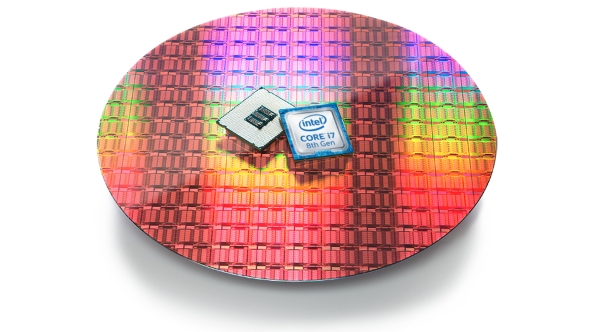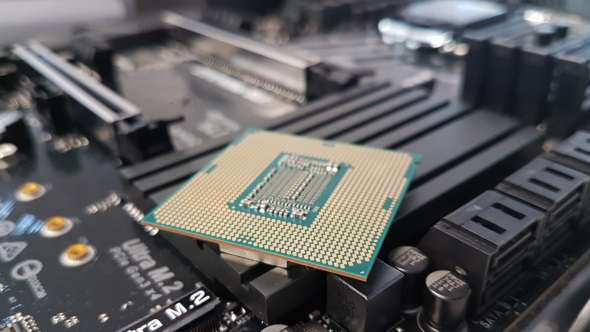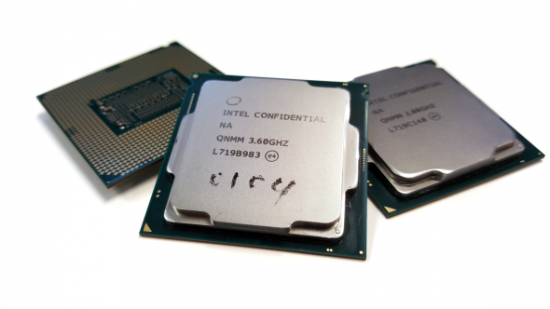Intel’s CEO, Brian Krzanich, has just published a blog post regarding the Spectre and Meltdown security exploits, and how Intel are going to continue mitigating their effects. Interestingly he also mentions specific hardware fixes being introduced to new 8th Gen Core CPUs shipping in the second half of the year. Could he mean the almost mythical Coffee Lake Core i9?
Check out our pick of the best CPUs for gaming.
The Spectre and Meltdown security bugs came to light via Google’s Project Zero analysis at the start of the year and showed three different variants of attack (Variants 1 and 2 were named Spectre and Variant 3 Meltdown), which could offer a backdoor into a machine’s system memory.
It was particularly worrying for virtual machines and their servers, less so for us gaming folk. But still, Intel have had to move quickly to attempt to mitigate the problem and have been working (to greater or lesser success) on software fixes. Unfortunately there still needs to be a hardware solution, and that can only come with new chips.
Krzanich announced today that Variant 1 is going to keep being dealt with via their software fixes, but Variants 2 and 3 will have specific hardware fixes introduced into new products later this year.

“These changes will begin with our next-generation Intel Xeon Scalable processors (code-named Cascade Lake),” writes Krzanich, “as well as 8th Generation Intel Core processors expected to ship in the second half of 2018.
“As we bring these new products to market, ensuring that they deliver the performance improvements people expect from us is critical. Our goal is to offer not only the best performance, but also the best secure performance.”
Krzanich explains the hardware fix as something that acts as a barrier within the processor hardware, which halts any potential security bypass gained via exploiting the speculating execution feature of the hardware.
“We have redesigned parts of the processor,” Krzanich explains, “to introduce new levels of protection through partitioning that will protect against both Variants 2 and 3. Think of this partitioning as additional ‘protective walls’ between applications and user privilege levels to create an obstacle for bad actors.”
Now, I am far too dumb to know 100% whether this will completely mitigate any problems brought about by the Spectre or Meltdown bugs, but I’m going to trust Intel on this until Google carry out maybe a Project One analysis.
What does pique my interest, however, is Krzanich’s assertion that a hardware fix would come with a fresh batch of 8th Gen Core CPUs shipping later this year. Now, as Jacob pointed out, that could just mean it’s a simple hardware fix that can be added into the mix when they’re manufacturing fresh versions of existing hardware. So potentially a Core i7 8700K manufactured to ship in the second half of this year will contain the hardware fix, while the original 8700K doesn’t. We’ve reached out to Intel for clarification on this.

Whether there is any difference between these potentially different chips would be very interesting. If the old one performs faster without the ‘protective walls’ then we might see demand spiking for OG i7s on the second hand market.
On the other hand it’s possible, if the hardware fix can’t be introduced into existing designs, that Krzanich is referencing brand new 8th Gen Core processors launching in the second half of 2018. We’ve been speculating on a potential eight-core, 16-thread Core i9 appearing alongside the Intel Z390– y’know, to make it somehow relevant -and that’s set to launch around the same timeframe as Intel’s CEO is writing about.
If the AMD Ryzen 2 processors are as quick as they seem to be then Intel are going to have a hell of a fight on their hands. They’re going to have to do something to fight back, but whether it’s a new high-end octa-core chip, or more aggressively priced CPUs in the mainstream market, we don’t know. But after the 18-core knee-jerk reaction we saw last year post-Threadripper I wouldn’t be surprised to see Intel doing something extreme after the second-gen Ryzens drop.
